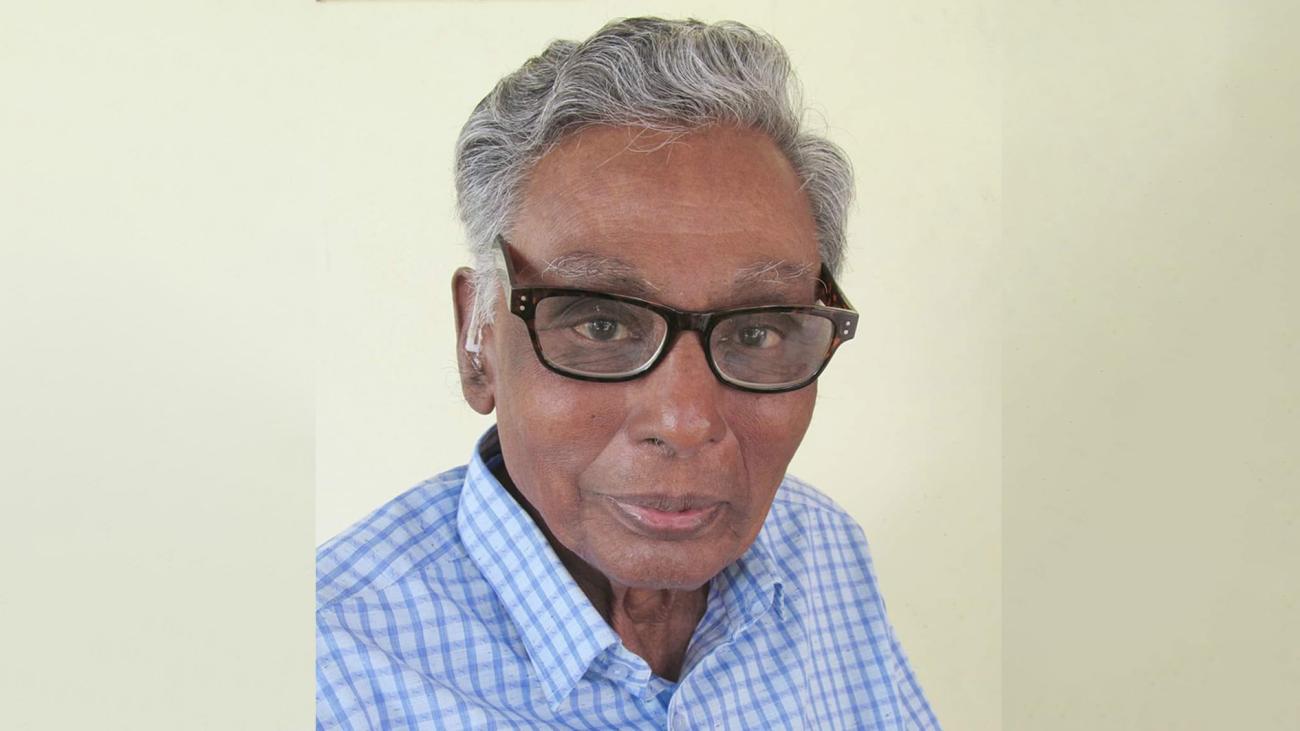CCA mourns the passing of Rev. Dr Dhyanchand Carr, former Secretary for Mission and Evangelism and prominent Indian theologian

Chiang Mai, Thailand: The General Secretary of the Christian Conference of Asia (CCA) Dr Mathews George Chunakara expressed deep condolences on the demise of Rev. Dr Dhyanchand Carr (86), a prominent Indian theologian and former Secretary for Mission and Evangelism of CCA.
A native of Thanjavur District in Tamil Nadu, Dhyanchand Carr was born in 1938 and passed away in Madurai, India, on 30 July 2024.
Carr worked as a teacher in Mombasa, Kenya and served as a pastor in the Tiruchi and Thanjavur Dioceses of the Church of South India (CSI) before joining the Tamil Nadu Theological Seminary (TTS), India.
Having served as a professor of New Testament for decades, and subsequently as Principal of the TTS, he retired from active service in 2003.
He served the Christian Conference of Asia in Hong Kong from 1993 to 1997 at the Mission and Evangelism desk.
Remembering his former senior colleague in the CCA Hong Kong office, the CCA General Secretary, who was also serving in Hong Kong at that time as Secretary for International Affairs, stated that Rev. Dr Dhyanchand Carr was instrumental in initiating a very inspiring and innovative programme in CCA focused on “reading and re-reading the Bible through Asian eyes”.
According to Dr Mathews George Chunakara, Dr Carr inspired many young people and students in India over the past decades. His biblical expositions helped young Asian theologians in CCA member churches relate biblical insights to contemporary realities, especially motivating them to re-read the Bible from Asian perspectives.
While recollecting the theological contributions of his former colleague, the CCA General Secretary said, “Dr Carr believed that although the churches in Asia are vigorously involved in evangelistic outreach programmes with their determination to bring more people as members of the Christian church, Asian Biblical expositions fail to address the pressing needs and aspirations of ordinary people and their struggle for life with dignity. Dr Carr considered this attitude of Asian churches to be the basic problem in Asian Biblical interpretation, and a hindrance to developing Biblical hermeneutics contextually.”
“He was committed to emancipating the Dalits and was known as a ‘Rebel Priest’ for his social activism; he considered social and human rights activism an essential component of his faith, witness and Christian obedience”, added Dr. Chunakara.
The octogenarian theologian was deeply involved in the human rights movement, even from the days of his pastoral ministry.










